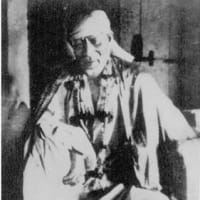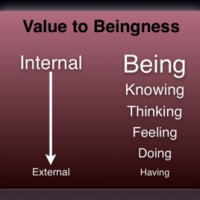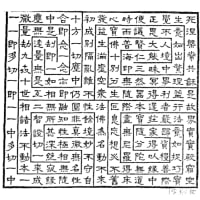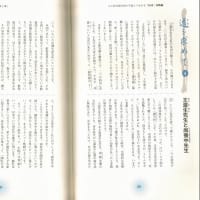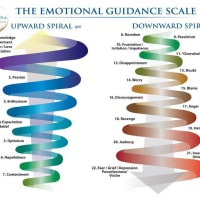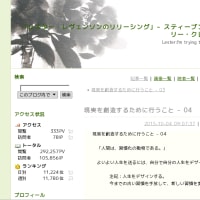今回のテーマは、「全託する」についてです。
「セルフ・アイデンティティー・スルー・ホ・オポノポノ」は、大いなる存在 (神聖な存在) に、「全託する」ことで起こります。
1. 「全託する」
「セルフ・アイデンティティー・スルー・ホ・オポノポノ」は、大いなる存在 (神聖な存在) に、「全託する」ことで起こります。
大いなる存在 (神聖な存在) に、
「ごめんなさい。許して下さい。愛しています。ありがとう。」と言う。
「私の中にある記憶が原因で、問題が引き起こされている」のを、あやまる。
神聖な存在 (大いなる存在) は、答えざるを得ない。
「マナが、降りてくる。記憶がニュートラルになり、無の状態になる。」
記憶を手放そうと、思うだけで起きる。
神聖な存在 (大いなる存在) から与えられる、変換の流れが起きる。
イハレアカラ・ヒュー・レン博士の講義より
手順です。
0. 何か起きた時、自分の中に聞きます。
1. 「私の中に、いったい何が、起きているのだろう?」
2. 「一体、自分の中のどの記憶が、(〜何なに〜) を、(〜何なに〜) させたのだろう?」
3. 「私は、自分のホ・オポノポノをいたします。」
4. 「そして、記憶を消去します。」
5. 「そうすると、私の (〜何なに〜) は、大丈夫な状態になります。」
6. 「私が、自由になると同時に、宇宙の全ての人から、その記憶 (データ) が、解放されます。」
2. ラマナ・マハルシとの対話Talk 106.より
Talks with Sri Ramana Maharshi より抜粋。
29th November, 1935 1935年11月29日
Talk 106.
Swami Yogananda with four others arrived at 8.45 a.m. He looks big, but gentle and well-groomed. He has dark flowing hair, hanging over his shoulders. The group had lunch in the Asramam.
スワミ・ヨガナンダは、他の4人と一緒に、午前8時45分に到着しました。彼は、大きく見えますが、優しくて手入れが行き届いています。彼は、暗い流れる髪をしていて、肩にぶら下がっています。グループは、アスラマンで昼食をとりました。
Mr. C. R. Wright, his secretary, asked: How shall I realise God?
秘書のC.R.ライト氏は、次のように尋ねました。
どうすれば、神を悟りますか?
M.: God is an unknown entity. Moreover He is external. Whereas, the Self is always with you and it is you. Why do you leave out what is intimate and go in for what is external?
M:神は、未知の存在です。さらに、彼は外部です。一方、自己 (真我:Self) は、常にあなたと共にあり、それはあなたです。なぜあなたは、親密なものを省き、外部のものに取り掛かるのですか?
D.: What is this Self again?
D:この自己 (真我:Self) は、また何ですか?
M.: The Self is known to everyone but not clearly. You always exist. The Be-ing is the Self. ‘I am’ is the name of God. Of all the definitions of God, none is indeed so well put as the Biblical statement “I AM THAT I AM” in EXODUS (Chap. 3).
M:自己 (真我:Self) は、誰にでも知られていますが、はっきりとはわかりません。あなたは、いつも (常に) 存在します。存在は、自己 (真我:Self) です。「私は在る (I am)」は神の名前です。神のすべての定義の中で、出エジプト記 (第3章14節) の聖書の声明「私は、私で在るものである (I AM THAT I AM)」ほど、うまく表現されているものはありません。
There are other statements, such as Brahmaivaham, Aham Brahmasmi and Soham. But none is so direct as the name JEHOVAH = I AM. The Absolute Being is what is - It is the Self. It is God. Knowing the Self, God is known. In fact God is none other than the Self.
ブラフマー イバーハム (ブラフマンは私である:Brahmaivaham)、アハン ブラフマー スミ (私はブラフマンである:Aham Brahmasmi)、ソーハム (私は彼である:Soham) などの、他の格言 (ステートメント) があります。しかし、エホヴァ (JEHOVAH) = 私は在る (I AM) という名前ほど、直接的なものはありません。絶対的存在は、何であるかです - それは、自己 (真我:Self) です。それは、神です。自己 (真我:Self) を知ることで、神は知られています。実際、神は、他ならぬ自己 (真我:Self) です。
D.: Why are there good and evil?
D:なぜ、善と悪があるのですか?
M.: They are relative terms. There must be a subject to know the good and evil. That subject is the ego. Trace the source of the ego. It ends in the Self. The source of the ego is God. This definition of God is probably more concrete and better understood by you.
M:それらは、相対的な用語です。善と悪を知るための、主題がなければなりません。その主題は、自我 (エゴ) です。自我 (エゴ) の源をたどってください。それは、自己 (真我:Self) で終わります。自我 (エゴ) の源は、神です。この神の定義は、おそらくもっと具体的で、あなたには、もっとよく理解されています。
D.: So it is. How to get Bliss?
D:そうです。至福を取得する方法は?
M.: Bliss is not something to be got. On the other hand you are always Bliss. This desire is born of the sense of incompleteness. To whom is this sense of incompleteness? Enquire. In deep sleep you were blissful:
M:至福は、得られるものではありません。一方、あなたは、常に至福です。この欲求は、不完全性の感覚から生まれます。この不完全性の感覚は、誰にありますか?尋ねてください。(Enquire.) 深い眠りの中で、あなたは至福でした:
Now you are not so. What has interposed between that Bliss and this non-bliss? It is the ego. Seek its source and find you are Bliss.
今、あなたは、そうではありません。その至福と、この非至福の間に、何が介在したのでしょうか?それは、自我 (エゴ) です。その源 (ソース) を探して、あなたが、至福であることを見つけてください。
There is nothing new to get. You have, on the other hand, to get rid of your ignorance which makes you think that you are other than Bliss. For whom is this ignorance? It is to the ego. Trace the source of the ego. Then the ego is lost and Bliss remains over. It is eternal.
新しいものは、何もありません。一方、あなたは、自分が至福以外であると思わせる、無知を取り除く必要があります。この無知は、誰のためですか?それは、自我 (エゴ) にあります。自我の源をたどってください。その後、自我 (エゴ) は失われ、至福が残る。それは、永遠です。
You are That, here and now.... That is the master key for solving all doubts. The doubts arise in the mind. The mind is born of the ego.
あなたは、それです、今ここで....。それは、すべての疑問を解決するための、マスターキーです。疑問が、頭に浮かびます。心は、自我 (エゴ) から生まれます。
The ego rises from the Self. Search the source of the ego and the Self is revealed. That alone remains. The universe is only expanded Self. It is not different from the Self.
自我 (エゴ) は、自己 (真我:Self) から立ち上がる。自我 (エゴ) の源を探せば、自己 (真我:Self) が明らかになります。それだけが残っています。宇宙は、拡張された自己 (真我:Self) だけです。それは、自己 (真我:Self) と違いはありません。
D.: What is the best way of living?
D:最良の生き方は何ですか?
M.: It differs according as one is a Jnani or ajnani. A Jnani does not find anything different or separate from the Self. All are in the Self.
M:ジニャーニ (賢者:Jnani) か、アジニャーニ (無知者:ajnani) かによって違います。ジニャーニ (賢者:Jnani) は、自己 (真我:Self) とは、異なるものや分離したものを見つけません。すべてが、自己 (真我:Self) の中にあります。
It is wrong to imagine that there is the world, that there is a body in it and that you dwell in the body. If the Truth is known, the universe and what is beyond it will be found to be only in the Self.
世界があり、そこに身体があり、あなたが、身体の中に住んでいると想像するのは、間違っています。真実が知られているならば、宇宙とそれを超えているものは、自己 (真我:Self) の中にのみあることがわかります。
The outlook differs according to the sight of the person. The sight is from the eye.
見た目は、人の見た目によって異なります。視界は、目からです。
The eye must be located somewhere. If you are seeing with the gross eyes you find others gross. If with subtle eyes (i.e., the mind) others appear subtle. If the eye becomes the Self, the Self being infinite, the eye is infinite. There is nothing else to see different from the Self.
目は、どこかにある必要があります。あなたが、低俗 (gross) の目で見ているなら、あなたは、他の人を低俗 (gross) に見つけます。微妙な目 (つまり心) を持っている場合、他の人は、微妙に見えます。目が自己 (真我:Self) になり、自己 (真我:Self) が無限である場合、目は無限です。自己 (真我:Self) と違うものは、他にありません。
He thanked Maharshi. He was told that the best way of thanking is to remain always as the Self.
彼は、マハルシに感謝した。彼は、感謝の最善の方法は、常に自己 (真我:Self) のままでいることであると言われました。
End
- Talk 106.
『ラマナ・マハルシとの対話』より - 29th November, 1935 | 情報 (info)・アドオンスポット 2018.03.26
3. 参考サイト:サンスカーラ (生来の精神的傾向:samskaras)
- Turiyatita
Turiyatita 2019-09-29
30th November, 1936 (1936年11月30日)
Talk 289.
Having heard this truth, why does not one remain content?
真理を聞いたにもかかわらず、なぜ人は満足しないのでしょうか?
M:Because samskaras [innate mental tendencies] have not been destroyed.
なぜなら、サンスカーラ (生来の精神的傾向:samskaras) 、心の潜在的傾向がいまだに破壊されていないからだ。
Unless the samskaras cease to exist, there will always be doubt and confusion.
All efforts are directed to destroying doubt and confusion.
To do so their roots must be cut.
Their roots are the samskaras.
サンスカーラ (生来の精神的傾向:samskaras) が消え去らない限り、つねに疑いと混乱は続くだろう。
すべての努力は、この疑いと混乱を破壊することに向けられている。
そうするためには、その根本 (根:roots) を絶たねばならない。
その根本 (根:roots) が、サンスカーラ (生来の精神的傾向:samskaras) である。
These are rendered ineffective by practice as prescribed by the Guru.
グルから指導された修練によって、サンスカーラ (生来の精神的傾向:samskaras) は効力を失う。(注記:これらは、グルによって規定された実践によって無効にされます。)
The Guru leaves it to the seeker to do this much
so that he might himself find out that there is no ignorance.
探究者が、自分自身の努力で無知が存在していないことを見いだせるように、
グルは、それを探究者の手にまかせる。
2020-11-08 06:24:11〜2020-11-11 09:05:53 記述しました。










